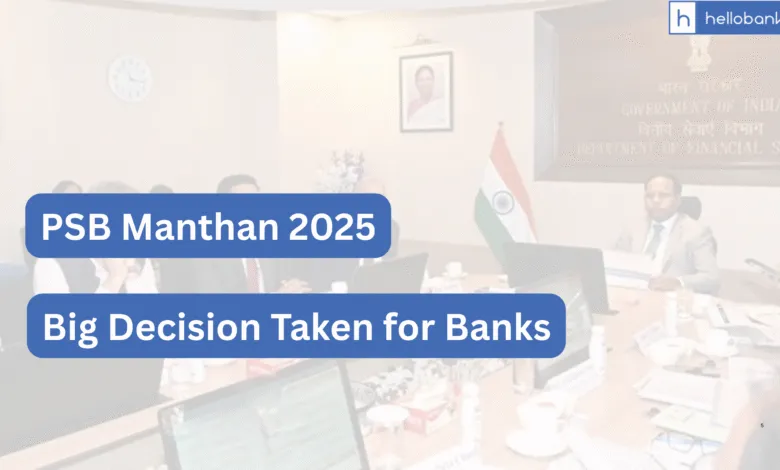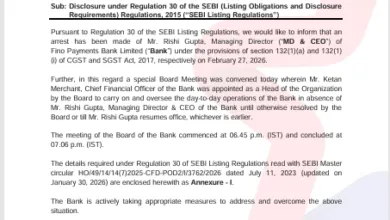PSB Manthan 2025: Two Global Scale Banks to be created, Read Discussions held in Meeting

The Finance Ministry has organised a two-day PSB Manthan from September 12 to discuss and design the next wave of reforms for public sector banks (PSBs). MD&CEOs of all 12 PSBs participated in the event to discuss on improving the performance of Public Sector Banks. In the event, some big discussions were held.
The meeting was chaired by DFS Secretary M. Nagaraju and attended by senior officials of the ministry, executives of major public sector banks, and regulatory authorities. Among those present were SBI Chairman C.S. Setty, Punjab National Bank CEO Ashok Chandra, Chief Economic Adviser V. Anantha Nageswaran, RBI Deputy Governor Swaminathan J, and former DFS Secretary Debasish Panda, along with other experts.
Vision for Globally Competitive Banks
India has set a target of creating at least two globally competitive banks that can rank among the top 20 banks worldwide. This initiative is part of the government’s Viksit Bharat 2047 vision, which aims to make India a developed nation by 2047.
At present, India’s banking system does not feature among the global top 20. The State Bank of India (SBI), which is the largest Indian bank, is ranked 43rd in the world by assets, while HDFC Bank holds the 73rd position. The government now wants at least two banks to move into the top 20 rank. Interestingly, the approach being considered is organic growth rather than mergers or forced consolidation of banks. This means that the Government wants Banks to increase their business and market capitalisation organically i.e. naturally.
Discussions at PSB Manthan 2025
The session focused on several important issues related to strengthening public sector banks (PSBs). One of the main points was how to scale up Indian banks to global standards. Officials and experts suggested that banks need to grow in size, diversify their operations, and adopt new strategies to compete internationally. Another significant topic was the autonomy of bank boards. It was emphasized that boards should have greater freedom in taking commercial decisions, which will improve efficiency and speed in operations.
Focus on Asset Quality and Reforms
Discussions were also held regarding the importance of asset quality management. The RBI had earlier conducted an asset quality review in 2015, which revealed a large number of bad loans, leading to non-performing assets (NPAs) peaking in 2018. Since then, NPAs have been declining, but banks were advised to continue their efforts to keep NPA ratios low. The meeting also reviewed reforms introduced in recent years, including the EASE (Enhanced Access & Service Excellence) reforms, which were first launched in 2017. These reforms aim at improving customer service, digitisation, governance, and operational efficiency in PSBs.
Challenges and Future Roadmap
The discussions were also held on challenges such as information technology risks, cyber-security threats, customer service quality, and grievance redressal mechanisms. Officials stressed that addressing these issues is essential for Indian banks to achieve global relevance. Diversification of operations and building expertise in multiple areas of banking were suggested as ways to strengthen PSBs further.
